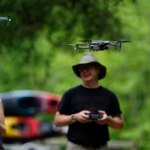A recent study about bone loss in astronauts is providing important information about the effects of space travel on the human body.
最近一项关于宇航员骨质流失的研究提供了太空旅行对人体影响的重要信息。
The research could help space agencies reduce harmful effects on astronauts in future space flights.
这项研究可以帮助航天机构在未来的太空飞行中减少对宇航员的有害影响。
The recent research gathered new data on bone loss in 17 astronauts who worked on the International Space station.
这项最新研究收集了在国际空间站工作过的17名宇航员骨质流失的新数据。
It involved 14 male and three female astronauts. Their average age was 47 years old.
它包括14名男性和3名女性宇航员。他们的平均年龄为47岁。
The study looked at bone loss caused by the microgravity conditions, or very weak force of gravity, in space. It also studied how bone mineral density can be regained back on Earth.
该研究着眼于由于太空微重力环境引起的骨质流失。它还研究了如何在地球上恢复骨密度。
The astronaut's missions were about five and one half months on average.
宇航员的任务时间平均约为5个半月。
One year after returning to Earth, the astronauts had 2.1 percent reduced bone mineral density at the tibia, a bone in the leg. They also had on average a 1.3 percent reduction in strength. Nine experienced permanent loss - they did not fully recover bone mineral density after the space flight.
在返回地球一年后,宇航员的胫骨的骨密度降低了2.1%。他们的力量也平均减少了1.3%。有9人遭遇了永久性骨质流失,他们在太空飞行后骨密度没有完全恢复。
Leigh Gabel of the University of Calgary was the lead writer of the research published recently in Scientific Reports.
卡尔加里大学的利·加贝尓是这项发表在《科学报告》上的研究的主要作者。
Gabel said that what is new about this study "is that we followed astronauts for one year after their space travel to understand if and how bone recovers."
加贝尓表示,这项研究的新颖之处在于“我们在宇航员太空旅行后对宇航员进行了1年时间的跟踪调查,以了解他们的骨骼是否恢复,以及如何恢复。”
Gable noted that astronauts experienced bone loss during six-month spaceflights that one would expect to see in older people over 20 years on Earth.
加贝尓指出,宇航员在6个月的太空飞行中经历了骨质流失,人们预计会在地球上经过20年以上时间的老年人身上看到这种情况。
These astronauts "only recovered about half of that loss after one year back on Earth," she added.
她还表示,这些宇航员“在返回地球一年后其骨质流失只恢复了大约一半。”
The bone loss happens because bones that usually carry weight on Earth do not carry weight in space. Space agencies are going to need to make better exercise and eating plans to help prevent bone loss, Gabel explained.
骨质流失的发生是因为在地球上通常承载压力的骨头在太空中不承载压力。加贝尔解释说,航天机构将需要制定更好的锻炼和饮食计划,以帮助防止骨质流失。
She noted that "During spaceflight, fine bone structures thin, and eventually some of the bone rods disconnect from one another."
她指出,“在太空飞行期间,纤细的骨骼结构变薄,最终一些骨骼彼此断开。”
The result, Gabel said, is that "once the astronaut comes back to Earth, the remaining bone connections can thicken and strengthen, but the ones that disconnected in space can't be rebuilt, so the astronaut's overall bone structure permanently changes.”
加贝尔表示,结果就是,“一旦宇航员返回地球,剩余的骨骼连接会变厚和增强,但是在太空中断开的连接无法重建,因此宇航员的整体骨骼结构会发生永久性变化。”
The study's astronauts flew on the space station in the past seven years. The astronauts were from the U.S. space agency NASA, Canadian Space Agency, European Space Agency and Japan Aerospace Exploration Agency.
研究涉及的宇航员在过去7年中曾在空间站上飞行。这些宇航员来自美国宇航局、加拿大航天局、欧洲航天局以及日本宇宙研究开发机构。
The effects of space travel on the human body are important for space agencies as they plan new explorations.
太空旅行对人体的影响对于航天机构规划新的太空探索来说非常重要。
NASA is aiming to send astronauts back to the moon, a mission now planned for 2025 at the earliest. Future astronaut missions to Mars or a long-term presence on the Moon's surface are also possibilities.
美国宇航局的目标是将宇航员送回月球,这项任务现在计划最早在2025年进行。未来的火星任务或在月球表面的长期存在也是可能的。
Gabel said that muscle loss, bone loss, effects on the cardiovascular system, and even radiation are big concerns for astronauts.
加贝尔表示,肌肉流失、骨质流失、对心血管系统的影响,甚至辐射都是宇航员非常关心的问题。
"Without gravity pulling blood towards our feet, astronauts experience a fluid shift that causes more blood to pool in the upper body. This can affect the cardiovascular system and vision," Gabel explained.
加贝尔解释说:“如果没有重力推动血液流向我们的脚部,宇航员会经历体液改变,导致更多的血液聚集在上半身。这会影响心血管系统和视力。”
She added that "Radiation is also a large health concern for astronauts as the further they travel from Earth the greater exposure to the sun's radiation and increased cancer risk."
加贝尔还说:“对于宇航员来说,辐射也是一个很大的健康问题。因为他们离地球越远,暴露在太阳辐射下就越严重,患癌症的风险就越大。”
The study showed that longer space missions resulted both in more bone loss and a lower likelihood of recovering bone later. In-flight exercise, such as resistance training, proved important for preventing muscle and bone loss. Astronauts who performed more deadlifts compared to what they usually did on Earth were found to be more likely to recover bone after the mission.
研究表明,更长时间的太空任务会导致更多的骨质流失以及后期恢复骨骼的可能性更低。飞行中的锻炼,例如阻力训练,被证明对预防肌肉和骨骼流失很重要。与他们通常在地球上所做的相比,做更多硬拉的宇航员被发现更有可能在执行任务后恢复骨骼。
Gabel said there is still much to be learned about the effects of space travel on human health – particularly on space missions longer than six months.
加贝尔表示,关于太空旅行对人类健康的影响还有很多问题需要了解,尤其是在超过6个月的太空任务中。
I'm John Russell.
我是约翰·拉塞尔。(51VOA.COM原创翻译,请勿转载,违者必究!)















